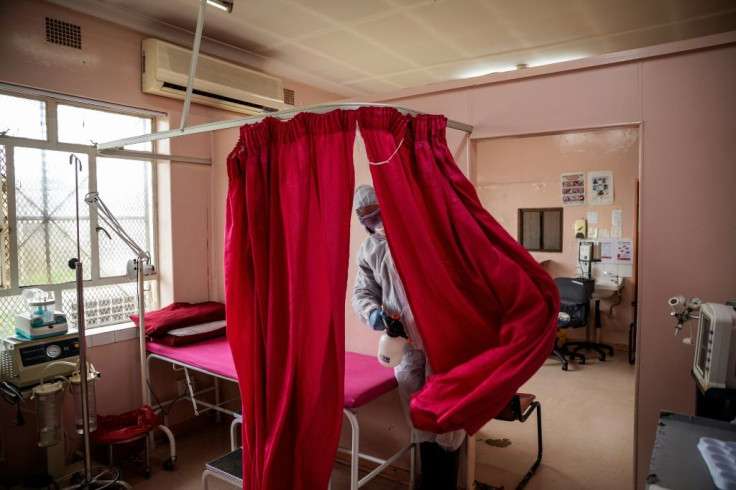Coronavirus Depression? Oxfam Predicts Pandemic Will Push Half Billion Into Poverty

KEY POINTS
- Oxfam calls for economic rescue package ahead of next week's meetings of the World Bank, IMF and Group of 20 finance ministers
- Oxfam estimates as much as 8% of the global population could be pushed into poverty, setting progress back as much as 30 years in some areas
- IMF predicts negative growth this year in 170 countries
Oxfam predicts 500 million people could be pushed into poverty as a result of the coronavirus pandemic and called on world leaders to develop an economic rescue package to keep poor countries and communities afloat. The head of the International Monetary Fund said the situation could rival the Great Depression.
The World Bank, IMF and Group of 20 finance ministers were scheduled to meet next week to consider ways to stem the economic fallout.
Oxfam estimates 6% to 8% of the global population could be forced into poverty as spread of the virus forces governments to shut down economies, setting progress back by at least a decade and perhaps by 30 years in some regions.
“This could mean more than half of the global population could be living in poverty in the aftermath of this pandemic,” Oxfam said in a press release.
IMF Managing Director Kristalina Georgieva noted it already is clear an economic downturn is underway.
“We anticipate the worst economic fallout since the Great Depression,” she said in remarks prepared for delivery ahead of next week’s meetings.
She continued: “Just three months ago, we expected positive per capita income growth in over 160 of our member countries in 2020. Today, that number has been turned on its head: We now project that over 170 countries will experience negative per capita income growth this year.
“The bleak outlook applies to advanced and developing economies alike. This crisis knows no boundaries. Everybody hurts.”
Abby Maxman, president of Oxfam America, noted, however, the poorest, most marginalized communities will feel the impact the most keenly, with the United Nations predicting more than half of jobs in Africa could be lost.
“While the reach of COVID-19 may be universal, the impacts will not be experienced equally,” she said.
Oxfam called for cash grants to be provided to bail out small businesses and for the cancellation of at least $1 trillion dollars in sovereign debt. It also called for at least $1 trillion to be added to international reserves to increase funds available to the most vulnerable countries.
“This pandemic is clearly exposing deep systemic inequality and is quickly making disparities worse, as millions of marginalized people are struggling to stay afloat, stay healthy, and survive,” Maxman said. “Now is the time for bold action from the G20 Finance Ministers, the International Monetary Fund and the World Bank to help developing countries bail out the poorest and most vulnerable communities.”
Oxfam noted workers, the vast majority female, in poor countries – an estimated 2 billion people – often work from home in informal jobs and do not have sick pay or other protections. They also are unlikely to have access to unemployment benefits.
© Copyright IBTimes 2025. All rights reserved.






















